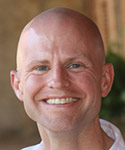I grew up in a part of the country where the church’s favorite word was “no.” Even though my childhood congregation was an outlier, the church culture in my corner of the Bible Belt was very much in the “thou shalt not” mode. Christian discipleship and ethics were bound up in avoiding sin.
My freshman year of college, then, was an awakening, but not in the way that some people’s freshman years are.
Mine arrived in Religion 376, Christian Literary Classics. We read Dante’s “Divine Comedy,” that sprawling three-volume poetic journey from an imagined hell through purgatory to paradise. While Dante’s guides for the journey were Virgil and his beloved Beatrice, my guide was Professor Ralph Wood. He introduced me to an entirely new way of conceiving of Christian discipleship and ethics.
For Wood, the concerns of ethics were always concerns about love. What he named for me, what I have held on to for more than two decades now, is that Christian ethics is about learning to love the right things in the right ways. I am confident that he was more nuanced and more sophisticated in his presentation than my memory holds; I am sure he spoke of Augustine and Aristotle and the golden mean and all such things.
What was life-changing, though, for this 19-year-old from Watauga County, North Carolina, was the simple notion that discipleship was about learning to love.
As we read “Inferno,” Wood helped us name how love can go wrong in two significant ways. First, we could love the wrong things too much. We read canto after canto about the gluttonous, the arrogant, the angry, the lustful -- each of whom had fallen in love too deeply with worldly things. It was impossible for college students not to connect this excessive love with whatever had happened on the quad the previous Friday night.
But second, Wood taught that we also could love the right things too little. While Dante filed sins like hypocrisy, stealing and violence in this category, it was easy for our class to supplement that list with pernicious and pervasive phenomena like racism, sexism, homophobia, apathy and cynicism.
Christian discipleship and Christian ethics were and are about learning to love the right things in the right ways. The discernment is in sorting out which things and ways are right. Jesus in St. John’s Gospel gives us a shorthand: “I give you a new commandment, that you love one another. Just as I have loved you, you also should love one another. By this everyone will know that you are my disciples, if you have love for one another” (John 13:34-35 NRSV).
This discernment is not only central to our individual discipleship but also significant for our life together in institutions. What does it mean for our institutions to love the right things in the right ways?
The danger in asking this question, of course, is that institutions are gifted at waxing poetic about mission and values while obscuring their actual behavior and commitments. Perhaps, then, this discernment at an institutional level best begins, not with the theoretical question, but with the honest question of our institutional reality: What does our institution really love?
We might find an answer by looking at three things.
First, our organizational charts can help us discern how we are structured to love. The presence of dedicated paid staff within judicatories to resource congregational leaders is a clear example of responding faithfully to these questions. If judicatories exist to support congregations -- and not the other way around -- then the judicatory must be structured to extend and strengthen the ministries and vitality of congregations. In your own organization, what are you staffed to love?
Second, our institutional budgets reflect our moral and missional priorities. To be fair, any one year’s budget may be an anomaly, but over time, trends and patterns in our funding reflect our priorities and love. Imagine the congregation that says children and youth are a priority yet funds those ministries from the leftovers in the annual budgeting process. What would love have us do?
Finally, what loves are reflected in our organizational calendars? How do we spend our days? Senior leaders in Christian institutions often find this a frustrating line of inquiry, as their responsibilities frequently preclude spending their days as they might choose. When we broaden the picture beyond senior leaders and ask how our organizations spend their time as a whole, I am not sure that the answer is more hopeful. When viewed through the lens of love, we may have to confess that, timewise, we are loving the wrong things too much and the right things too little.
What do we really love as an institution? Answering that question clearly and candidly helps us discern the work we need to do to learn to love the right things in the right ways. But that’s good work. That’s the shape of our discipleship at an institutional level.













